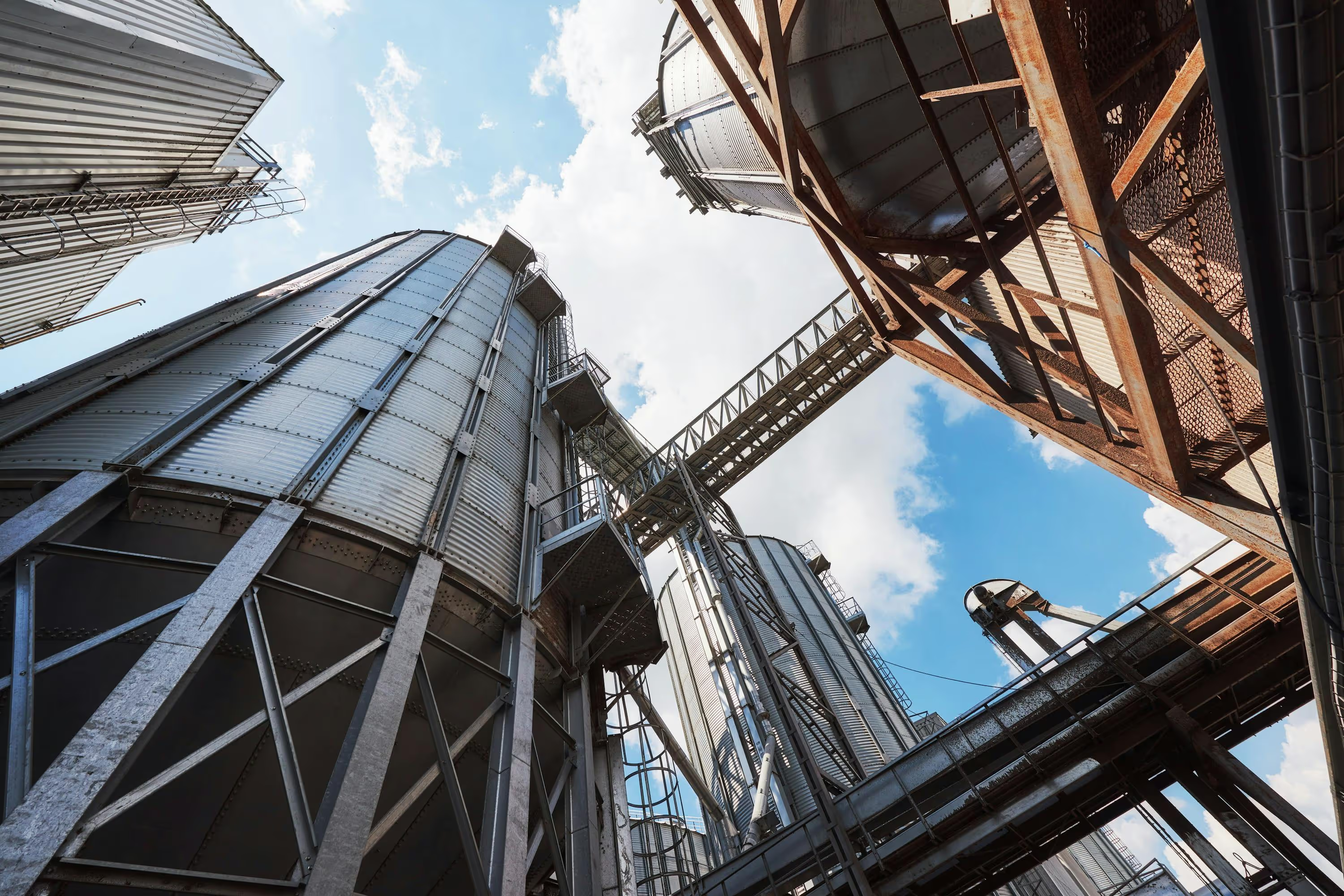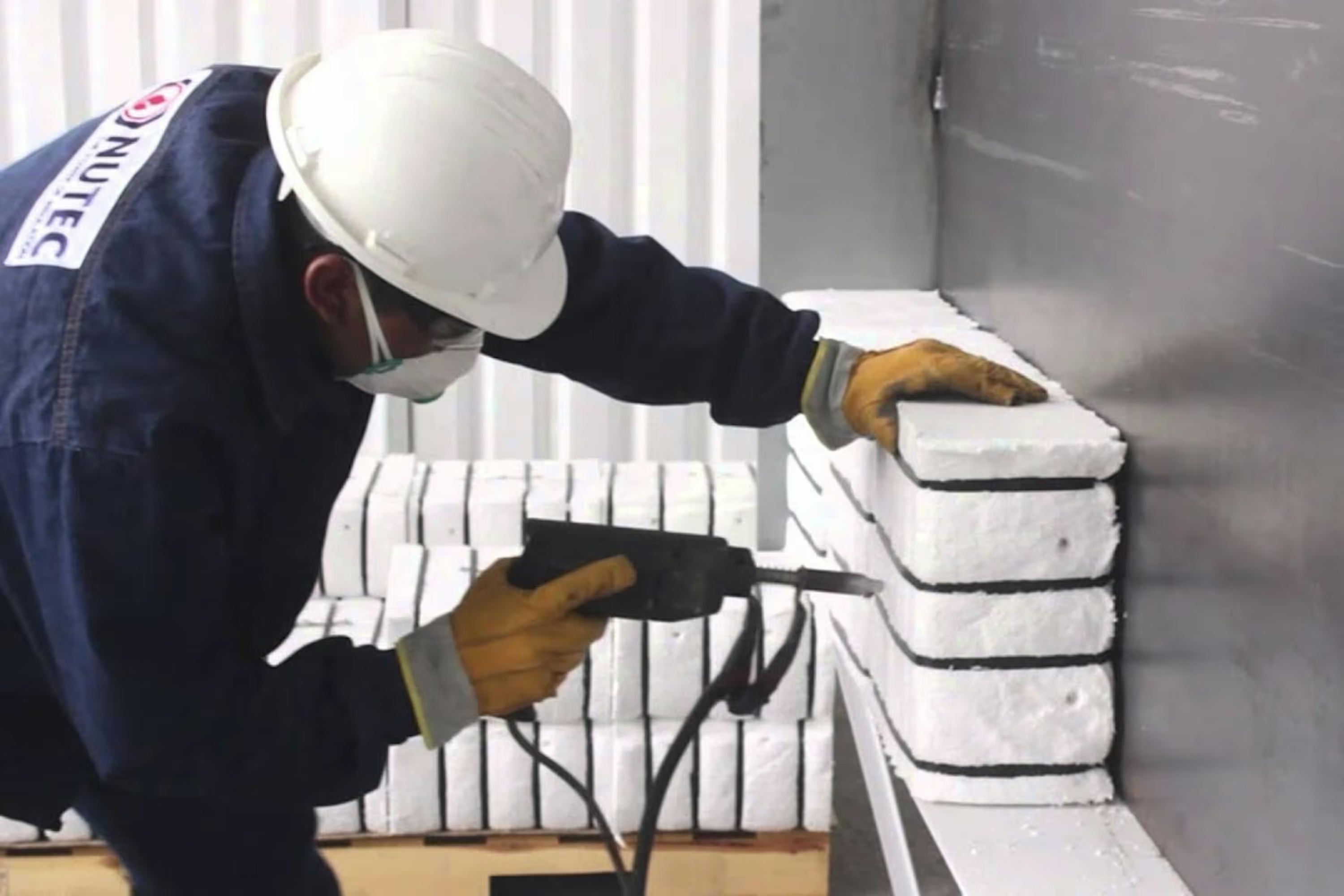
English (Global)
Article
Heat Insulation: Choosing the Best Option for Your Industry
Temperature control is vital in numerous industries to ensure efficiency and safety – this is the reason why choosing the most appropriate heat insulation material is so important. Learn more about it here.
By Christian Tavira
Manager of Application Engineering & Technical Support - NUTEC
Some industries handle high temperatures daily in their production processes, which can affect not only the performance of the equipment but also worker safety and the quality of the products. Therefore, the appropriate choice of heat insulation solution is crucial for any manufacturing sector to achieve first-class performance.
In this article, we will look at aspects that industries should consider when choosing a heat insulation solution.
The most suitable heat insulation, according to industry needs
When selecting a specific solution, we recommend considering the industry's particular needs.
- Petrochemical industry. The petrochemical industry operates in highly demanding environments. Therefore, thermal insulation must protect pipes and equipment from the high temperature generated by the oil refining process.
- Food industry. Insulation is often used to keep food at the correct temperature during processing and storage. It is essential that the material is resistant to humidity, corrosion and that it meets safety and health requirements.
- Automotive industry. These products are often used in the design of both electric vehicles and conventional powertrains, from exhaust heat shields to electric car lithium battery separators. Insulation materials must be resistant to high temperatures and vibration.
- Construction industry. Thermal solutions are used for high temperature protection of ventilation ducts; grease ducts or ventilation grills (particularly for commercial premises such as hotels, restaurants, casinos, etc.); chimneys; and precast duct systems. They are also essential in passive fire protection, temperature, and/or noise insulation.
- Power generation industry. Here, insulation protects equipment and pipelines that carry fluids at high temperatures. In this type of plant, insulating solutions improve thermal efficiency and reduce heat leakage while filling voids or gaps.

The four most important aspects to consider
Temperature range
The heat range factor must be considered when selecting a suitable thermal insulation material based on continuous temperature. For this purpose, checking the specific insulation material threshold is a must.
Different insulation materials have varying temperature limits, so choosing a product that can perform effectively within the desired temperature range is crucial.
Continuous use temperature:
This refers to the temperature range within which a system or piece of equipment is designed to function optimally under normal operating conditions.
It’s based on factors such as system performance, efficiency, and reliability. Ensuring the selected materials and components withstand and operate effectively within this range is vital.
Maximum Use Temperature:
This refers to the highest temperature the system or equipment may be faced with during operation, even for a short period or under abnormal conditions. It represents the upper limit beyond which the system can experience thermal stress, degradation, or failure.
The maximum use temperature is typically determined by process demands, transient conditions, start-up or shutdown procedures, and/or possible equipment failure.
These factors will guide you to the most appropriate thermal insulation material; one that is capable of effectively withstanding the prevailing temperatures and that can provide insulation for your specific operating temperature range.
Pro tip: Consulting with insulation manufacturers or industry experts is recommended to ensure the best pick for your application.
Durability
Material selection is crucial since each one has different thermal and mechanical properties that affect its durability. Some of the most common materials in the industry are ceramic fiber, fiberglass, mineral wool, Styrofoam, and polyurethane foam.
Energy efficiency will be compromised by opting for low to average qualities, which can lead to higher energy costs and production downtime – not to mention dangerous and costly failures in the system.
Each heat-insulating material has advantages and disadvantages, so it is recommended to evaluate them properly before making decisions.

To reduce energy costs while increasing capacity in high temperature processes, check out our article "The Importance of Heat Insulation Materials for Energy Efficiency and Cost Reduction".
Environmental conditions
Though a commonly overlooked factor, this is essential when choosing the most appropriate solution for your project.
The environmental conditions that arise during various processes, such as humidity, vibration and movement, pressure, and exposure to corrosive agents, can affect the effectiveness of high temperature thermal insulation.
Profitability of the thermal solution
Profitability is crucial when choosing a heat-insulating solution. The total cost of ownership should be evaluated, including the initial cost of the product, installation, shipping, maintenance, and the lifespan of the insulation.
Although some thermal solutions may have a higher initial cost, they can offer greater energy efficiency, resulting in significant savings in the long run.

To help you plan your budget wisely, check out our article, "How Much Do Thermal Insulation Materials Cost? 8 Factors That Determine Their Price".
And don't forget about these additional criteria
Sustainability
Sustainability is a significant industry consideration when choosing a heat insulation system. The materials used must be resistant, safe, and environmentally friendly.
Furthermore, it is vital to consider the environmental impact of the production process and transportation of high temperature thermal insulation materials. Currently, there are increasing regulations and best practice guides for manufacturing materials, aimed at positively impacting society and the environment.

The engineering team’s expertise
Choosing the appropriate thermal insulation can be a complex process that requires engineering expertise.
By working with a provider such as NUTEC, you gain access to a team of experienced engineers who can provide advice, technical support, and innovative, customized solutions.
This includes design, process simulation, and testing services to ensure the product meets your application specifications and requirements.

Innovative technology
The world and thermal insulation technologies are changing rapidly. The use of technology can improve efficiency in thermal insulation, leading to improved energy conservation. In addition, technological advances in materials and design may make insulation lighter, stronger, and more durable.
Therefore, it is essential to ensure that the technology used in manufacturing is the most advanced and up-to-date.

Find out how NUTEC remains at the forefront of thermal insulation technology.
Choose the best option
By exploring the above-mentioned elements and consulting with thermal insulation experts, you can carefully evaluate the most suitable option for your industry's needs.
By making this informed decision, you can expect substantial benefits, such as optimized energy performance, increased equipment durability, and enhanced safety in your production processes.
Would you like to receive valuable advice and learn more about our thermal insulation products? Contact us today.
Want to know more?
At NUTEC, we are committed to providing you with valuable content that helps you make informed decisions for your business. Thank you for taking the time to read this entry and we hope it provided you with insights that you can apply to your operations.
If you have any questions or would like to learn more about our products, please don’t hesitate to contact us.
To get in touch, simply fill out the form, and one of our experts will get back to you as soon as possible.
© NUTEC Incorporated 2026



